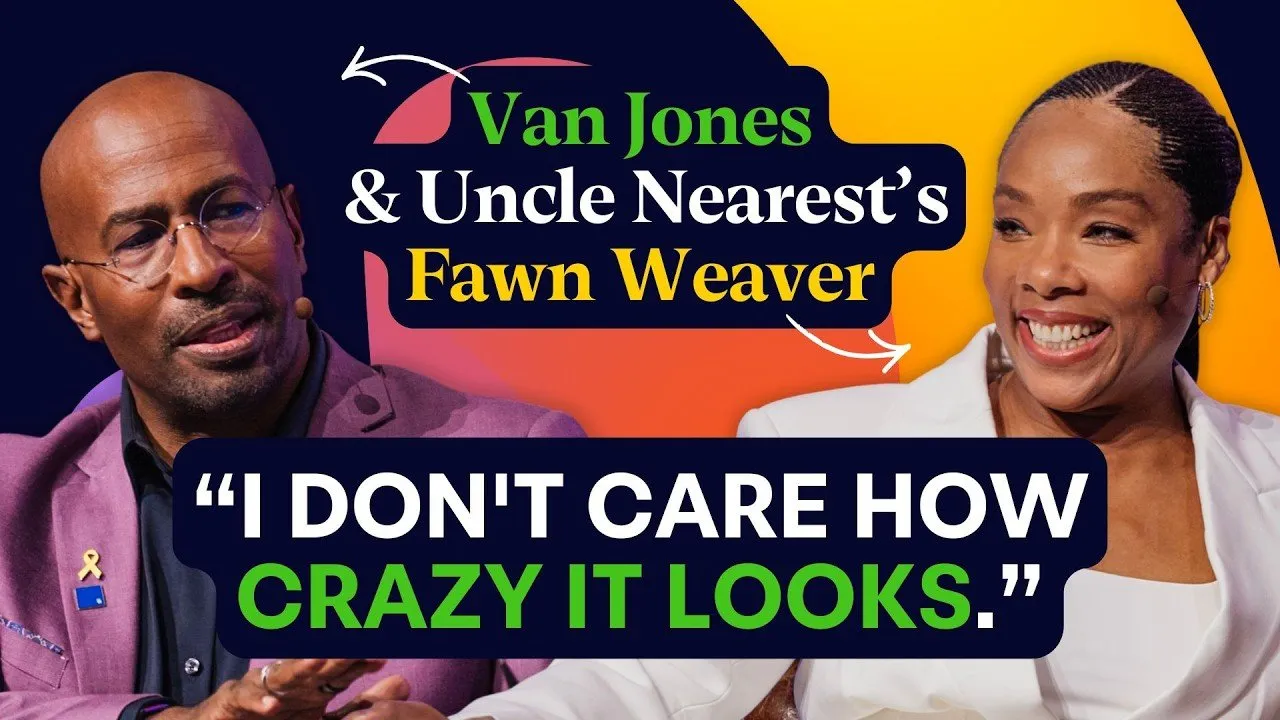Table of Contents
Author Louise Perry argues that the sexual revolution destroyed functional relationship patterns, leaving young people struggling with hookup culture, dating apps, and the breakdown of marriage as an institution.
Key Takeaways
- The sexual revolution prioritized male sexual freedom over women's wellbeing and relationship stability
- Technology like dating apps and porn has created winner-take-all dating markets favoring high-status men
- Casual sex creates emotional asymmetry that particularly harms women through bonding hormones like oxytocin
- Marriage remains the best solution for female vulnerability during pregnancy and childbearing years
- Christian sexual ethics, despite secular alternatives, provide the most functional framework for relationships
- Modern masculinity debates reflect deeper civilizational tensions between feminine and masculine approaches to social organization
- Declining birth rates may naturally select for more traditional, religious communities over time
- Strategic, brief, and celibate courtship periods lead to better long-term relationship outcomes than extended casual dating
The Modern Dating Apocalypse: Technology Destroyed Romance
- Dating apps create paradox of choice that leads to endless scrolling without meaningful connections, similar to Netflix browsing paralysis where abundance prevents decision-making. The coordination problem of finding life partners has become exponentially more difficult without traditional matchmaking structures and social scripts that once guided young people toward marriage.
- Biological differences between men and women create fundamental tensions in app-based dating environments. Women face fertility windows that create urgency for long-term commitment, while men feel they have unlimited time to play the field, leading to systematic relationship delays that particularly disadvantage women in their thirties.
- High-status men dominate dating apps, creating winner-take-all markets where a small percentage of attractive, successful men access most available women while average men struggle to find any matches. This digital environment amplifies natural hypergamous tendencies where women prefer partners at or above their socioeconomic level.
- The absence of premarital sex taboos dramatically reduces women's leverage in relationships, allowing men to delay commitment indefinitely since sexual access no longer requires marriage proposals or serious intentions.
- Traditional cultures consistently developed formal matchmaking systems because young people "left to their own devices actually find it really really hard to find life Partners" - the current improvisational approach represents a historical anomaly.
- Migration enabled by airplane technology dismantled local community structures that once facilitated relationship formation, leaving individuals isolated without extended social networks to provide guidance and introductions.
Why Casual Sex Fails Women: The Oxytocin Problem
- Women bond more intensely with sexual partners than men do, creating painful emotional asymmetry in casual relationships where "the woman is more into the relationship than is the man but doesn't want to say so and doesn't want to be needy."
- Sexual bonding clouds judgment through oxytocin release, making it harder to identify red flags or assess compatibility objectively. Early sexual involvement prevents the clear-eyed evaluation necessary for choosing appropriate long-term partners.
- Perry advocates for courtship that is "strategic brief and celibate" because the modern concept of extended young adult relationship experimentation represents a historically unusual pattern enabled by reliable contraception.
- Sociosexuality research reveals overlapping bell curves between male and female sexual preferences, with men generally more oriented toward casual encounters and women toward monogamous relationships. However, many women mistakenly believe they enjoy casual sex due to cultural pressure to conform to sex-positive norms.
- The minority of women with genuinely unrestricted sociosexuality still face significant risks from casual sex including pregnancy, violence, and sexually transmitted diseases, with women more vulnerable to STD transmission than men.
- Sex-positive feminism often appeals most to women who have been "burnt by our casual sex culture" because it provides an ideology that reframes negative sexual experiences as empowering rather than harmful.
Christian Sexual Ethics: The Surprising Solution
- Perry reconstructed traditional Christian sexual ethics through anthropological and historical research rather than religious belief, calling herself a "Christian agnostic" who attends church hoping faith might develop.
- Early Christianity revolutionized Roman sexual culture by extending female chastity requirements to men and recognizing women as spiritual equals with rights to bodily autonomy. Roman culture allowed high-status men unlimited sexual access to social inferiors, particularly female slaves.
- The Christian prohibition on infanticide, especially of female infants, addressed severe gender imbalances in late Rome where widespread killing of girls created ratios of 130 men to 100 women.
- Modern movements like #MeToo trace their moral foundations to Christian concepts of universal human dignity and female bodily autonomy, ideas that would have been incomprehensible to ancient Romans who viewed Harvey Weinstein-type behavior as normal patriarchal privilege.
- De-christianization poses particular risks for women because Christianity uniquely claims that "women and children and the poor and the disabled are not hateful by virtue of being weak" - most cultures historically viewed physical weakness as contemptible rather than deserving protection.
- The contrast between Jordan Peterson's Christian-influenced masculinity advice and Andrew Tate's pagan approach demonstrates how different moral frameworks produce vastly different attitudes toward women and relationships.
Marriage as Protection: Beyond Romance to Reality
- Marriage serves as "the only solution we've ever come up with to deal with the problem of female vulnerability" during pregnancy and early childbearing when women cannot fully participate in labor markets and require support from invested partners.
- Statistical evidence shows women face greater violence risk from boyfriends than husbands, contradicting assumptions that marriage increases domestic violence danger. The formalization and social recognition of obligations provides protective structures for vulnerable women and children.
- Modern divorce normalization enables people to end marriages "for really quite trivial reasons that aren't to do with abuse" but rather unfulfillment or authenticity concerns, reflecting unrealistic expectations about marriage as self-development vehicles.
- Contemporary marriage expectations have expanded beyond historical survival partnerships to include romantic connection, intellectual equality, therapeutic support, and personal growth - demands that exceed most relationships' capacity to deliver.
- The mutual complementarity model offers healthier relationship approaches than either transactional arrangements or impossible perfectionist standards. Ordinary people regularly achieve lifelong loving relationships when cultural supports and realistic expectations exist.
- Perry predicts demographic selection will naturally favor communities that successfully maintain marriage and fertility patterns, as dysfunctional societies either adapt or face extinction through declining birth rates.
The Masculinity Crisis: Channeling Male Energy
- J.D. Unwin's research across 86 cultures suggested sexually permissive societies lack "expansive social energy" for territorial expansion, wealth creation, and scientific discovery, while sexually conservative cultures channel male energy toward productive achievements rather than immediate gratification.
- Male variability hypothesis explains why men disproportionately represent both positive extremes (inventors, discoverers, geniuses) and negative extremes (murderers, rapists, psychopaths) - the fundamental civilizational challenge involves channeling volatile male energy constructively.
- Pornography addiction represents particularly destructive channeling of male libido, creating compulsive behaviors that "wreck their lives wreck their relationships" while tricking "monkey brains into thinking that they're getting sex" through masturbation rather than pursuing real achievement or relationships.
- The feminization of workplace culture has created more passive-aggressive environments with less direct conflict, reflecting women's tendency toward agreeableness and egalitarian social structures versus men's comfort with hierarchy and overt competition.
- Cancel culture emerged partly from feminized institutional environments where women prioritize protecting vulnerable groups from harm over preserving free speech, while men typically prioritize truth-seeking over potential emotional damage.
- Trump administration's rapid dismantling of progressive policies represents "a return of masculinity to these spaces" that Perry views as necessary correction but warns could overcorrect into genuinely harmful misogyny.
The Demographic Destiny: Who Inherits the Earth
- Declining birth rates threaten welfare state sustainability because the system "individualizes the burdens of having children and socializes the benefits of having children," creating economic incentives against reproduction while requiring younger workers to support growing elderly populations.
- Perry predicts humanity will survive demographic transition but undergo fundamental change, becoming "more religious" and "more clannish" as traditional communities maintain higher fertility rates than secular populations embracing modernity.
- Ultra Orthodox Jews, Amish, and Mormons maintain high birth rates through traditional social structures that combine genetic and cultural transmission, suggesting these communities will expand relative to declining secular populations.
- The welfare state represents merely "100 years old in the great history of humanity" - a brief historical experiment that may prove unsustainable under demographic pressure rather than a permanent feature of advanced societies.
- Modern isolation of nuclear families, exemplified by influencers like Ballerina Farm, actually differs from historical patterns where extended kin networks shared domestic labor burdens and child-rearing responsibilities.
- Cultural bottleneck effects will select for individuals and communities capable of maintaining fertility despite technological and social pressures that reduce reproduction in most developed societies.
Perry's thesis represents a fundamental challenge to post-1960s assumptions about sexual liberation and relationship freedom. Her anthropological approach reveals how quickly contemporary dating culture emerged and how dramatically it differs from historical human patterns, suggesting current dysfunction may drive cultural correction toward more traditional arrangements that better serve both individual wellbeing and societal sustainability.





